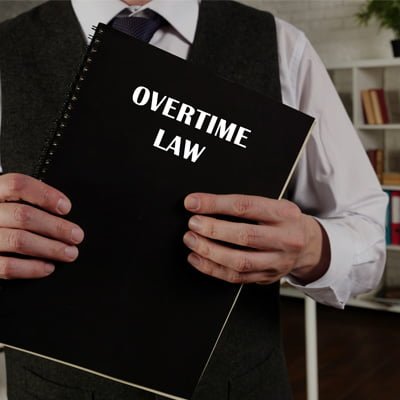Washington State Overtime Laws 2024:- Employers in Washington State are obligated to comprehend and adhere to the intricate web of regulations governing overtime pay to avoid legal repercussions and financial penalties. This article provides a comprehensive overview of Washington State's overtime laws, including eligibility criteria, compensation calculations, exemptions, and recent legislative changes.

Washington Overtime Overview
Under Washington Labor Law, employers must follow the Fair Labor Standards Act (FLSA) and Washington Minimum Wage regulations. Workers are entitled to overtime compensation for hours exceeding 40 in a workweek. Notably, overtime pay is not mandatory for hours worked over eight in a day, with exceptions for certain public work projects.
Defining the Work Week
A workweek, as per Washington State Overtime Laws, is a seven-consecutive-day cycle set by the employer, beginning and ending at the same time each week. If undefined, the default workweek is Sunday through Saturday.
Washington Overtime Compensation & Pay
Employers are generally required to compensate employees at 1.5 times their regular hourly rate for overtime hours. Collective bargaining agreements may necessitate higher payments. Double-time pay is seldom required, except for specific public works projects.
Calculating Overtime Pay
An example illustrates the calculation: Regular Pay + (Overtime Hours * Overtime Pay Rate) = Total Pay. The regular rate of pay includes hourly rates, salaries, piece rates, commissions, and certain bonuses. Exclusions comprise discretionary bonuses, tips, reimbursements, and paid time off.
Washington Overtime Eligibility
Overtime rules apply to all employers, but eligibility varies. Most hourly, piece rate, commissioned, and some salaried employees are entitled to overtime. Exemptions include certain salaried employees, those exempt under federal law, and specific industries subject to federal overtime requirements.
Washington Overtime Exemptions
Contrary to common belief, salaried employees are not universally exempt. Only those meeting specific salary level tests and definitions of executive, administrative, or professional employees qualify. Executive exemptions necessitate managing responsibilities, administrative exemptions involve non-manual work related to management, and professional exemptions demand advanced knowledge or creative endeavors.
Overtime for Washington Agricultural Businesses
Agricultural workers in Washington gained expanded overtime protections in 2021. The law, phased in over several years, mandates reduced weekly hours for overtime eligibility, culminating in 40 hours per week by January 1, 2024.
Washington Alternative to Overtime Pay
Public employers in Washington may offer compensatory time off (comp time) instead of overtime pay. Employees can receive 1.5 hours of paid time off for each overtime hour worked upon request.
Conclusion (Washington State Overtime Laws)
Navigating Washington State’s overtime laws is crucial for employers to ensure compliance and avoid legal consequences. Staying informed about eligibility criteria, compensation calculations, exemptions, and recent legislative changes will empower employers to create fair and legally compliant workplaces. Regular updates on labor laws and continuous employee education are essential for successful workforce management in Washington State.